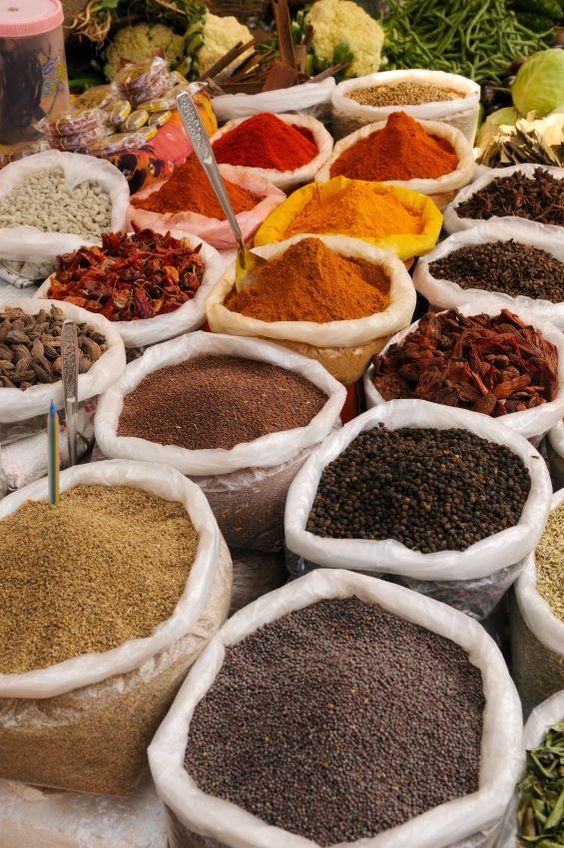Introduction to Indian Spices
India, known as the land of spices, has a rich history rooted in the use of aromatic herbs and spices. From turmeric to cumin, these flavoursome additions not only enhance the taste of dishes but also carry significant cultural and health benefits.
History and Origins
Indian spices have a history dating back thousands of years, with traders from around the world seeking these precious commodities. The spice trade played a crucial role in shaping the course of history and connecting distant lands.
Importance in Indian Culture
Spices hold great cultural significance in India, where they are used not only for flavouring food but also in medicinal practices, religious rituals, and even in traditional Ayurvedic medicines.
Health Benefits
Indian spices are not just about taste; they offer a range of health benefits too. Turmeric, for example, is known for its anti-inflammatory properties, while cumin aids digestion and coriander is rich in antioxidants.
Commonly Used Indian Spices
Turmeric
Turmeric, with its vibrant golden hue, is a staple in Indian cooking. It is revered for its medicinal properties and adds a warm, earthy flavour to dishes like curries and rice.
Cumin
Cumin seeds, when toasted or ground, release a warm, nutty aroma that is essential in Indian spice blends like garam masala. Cumin is also known for its digestive properties.
Coriander
Coriander, both in seed and leaf form, adds a fresh, citrusy note to Indian cuisine. It is commonly used in chutneys, curries, and marinades.
Lesser-Known Indian Spices
Asafoetida
Also known as hing, asafoetida has a strong, pungent smell when raw but transforms into a subtle onion-garlic flavour when cooked. It is a key ingredient in lentil dishes and vegetable curries.
Black Cardamom
Unlike its green counterpart, black cardamom has a smoky, menthol flavour that pairs well with robust meats and stews. It adds a unique depth of flavour to dishes.
Fenugreek
Fenugreek seeds are prized for their slightly bitter, nutty taste and are often used in spice blends like curry powder. They are also known for their health benefits, such as improving digestion.
Culinary Uses of Indian Spices
Spice Blends in Indian Cuisine
Indian spices are often combined to create complex spice blends like curry powder, sambar masala, and biryani masala. These blends vary by region and play a significant role in defining the flavours of dishes.
Regional Variations in Spices
Each region of India has its own unique spice preferences, influenced by local ingredients and traditions. For example, Kashmiri cuisine uses a lot of saffron and fennel seeds, while South Indian dishes feature coconut and curry leaves.
Cooking Techniques for Maximizing Flavour
To fully unlock the flavours of Indian spices, techniques like tempering (tadka), dry roasting, and grinding whole spices are commonly used. These methods enhance the aroma and taste of spices.
Sustainability and Ethical Sourcing of Indian Spices
Impact on Environment
The demand for Indian spices has led to environmental concerns such as deforestation and water depletion. Sustainable practices like organic farming and forest conservation help mitigate these impacts.
Fair Trade Practices
Fair trade initiatives ensure that farmers and labourers involved in spice production receive fair wages and working conditions. By supporting fair trade, consumers can contribute to the well-being of spice-growing communities.
Supporting Local Farmers
Buying directly from local farmers or cooperatives not only ensures the freshness and quality of spices but also supports small-scale producers and promotes ethical practices in the spice industry.
“The vibrant colours and rich aromas of Indian spices are a testament to the diverse culinary heritage of the country. By embracing these flavours, we not only tantalize our taste buds but also honour the traditions and communities behind each spice.”
FAQs
- Are Indian spices safe for consumption?
- Yes, Indian spices are safe when used in moderate amounts in cooking.
- How can I store Indian spices to maintain their freshness?
- Store Indian spices in airtight containers away from heat and sunlight to preserve their flavour.
- Are there any specific health benefits associated with Indian spices?
- Yes, Indian spices are known to have various health benefits such as anti-inflammatory properties, aiding digestion, and boosting immunity.

